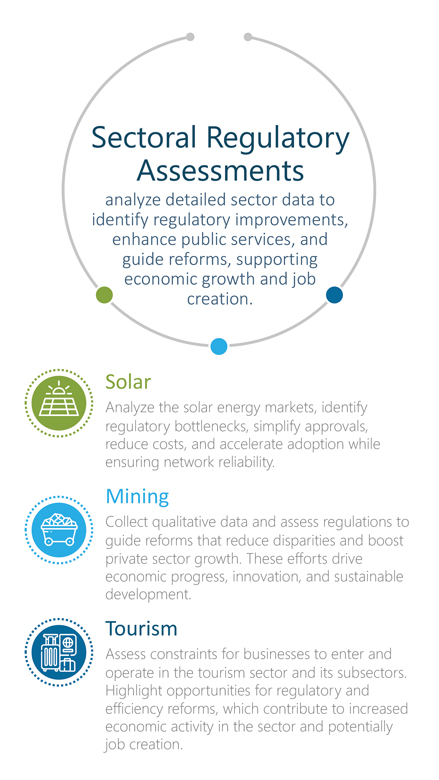Subnational B-READY
Subnational B-READY Assessments rely on the methodology established by the Global B-READY report, while adapting it to project-specific contexts according to client needs. The assessments are based on primary data collected by the Subnational B-READY team.
Subnational B-READY assessments focus on topics that are part of the firm life cycle and relevant at the subnational level, while also reflecting local priorities. These topics include, but are not limited to: Business Entry, Business Location, Utility Services, Dispute Resolution, and Business Insolvency. Across all topics, the assessments also examine cross-cutting dimensions such as digital adoption, environmental sustainability, and gender.
Subnational B-READY Most Common Topics

The Subnational B-READY methodology compiles a large set of indicators for each pillar within each topic, following the Global B-READY categorizations. The selection of indicators is based on their relevance, value added, and complementarity. These indicators have five major characteristics: they are indicative of established good practices; they are quantifiable and actionable through policy reforms; they seek to balance de jure and de facto measures within topics; they are comparable across locations and representative within each economy; and they span the most relevant aspects of each topic.
The Subnational B-READY studies differ from Global B-READY in the following ways:

For more details on the Subnational B-READY methodology and assessment processes, please refer to the Subnational B-READY Manual and Guide.





